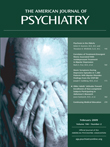George Vaillant is well known to psychiatrists for his exacting research on the psychological aspects of adult development and the evolution of ego mechanisms over the course of the life cycle. His epidemiologic studies on the natural history of alcoholism and the outcome of heroin addiction, conducted decades ago, have been revealing in ways that are unrivaled by many community-based studies carried out since then. In this volume, he has undertaken the task of applying his knowledge of contemporary psychiatric research and his own clinical experience to the recently emerging cultural debate over the existence of God and the value of religion. Many of the authors involved in this controversy, such as Richard Dawkins and Christopher Hitchens, protagonists of an atheist perspective, as well as Francis Collins, who espouses Christian beliefs, are strongly opinionated. Vaillant, on the other hand, has weighed in on this topic in a thoughtful manner, which may be acceptable even to the more tendentious of these protagonists.
Vaillant seeks to validate the legitimacy of spirituality as a vital concept for the reader to attend to and even to espouse. He defines spirituality as “the amalgam of the positive emotions that bind us to other human beings—and our experience of ‘God’ as we may understand Her/Him” (p. 5) and goes on to include positive feelings, such as love, hope, joy, forgiveness, compassion, faith, and gratitude, as central to its character. Although these traits may broaden the concept of spirituality to include most all that is benign in human nature, he backs up his argument with extensive and careful reasoning.
Vaillant’s arrival at this position is understandable in light of two major domains of his experience. The first is his longstanding interest in Alcoholics Anonymous, including his role as a nonalcoholic trustee of the fellowship. This position has been accorded to very few people and is based on the respect the Alcoholics Anonymous movement has for what such a person can offer in the way of understanding and broad perspective. Alcoholics Anonymous is a self-designated “spiritual fellowship,” and this aspect of its attractiveness to many people who suffer from addiction has borne a material influence on the acceptance of spirituality in contemporary American society—and not only among those members who have achieved recovery through their affiliation with it.
The second and more recent experience bearing on Vaillant’s outlook is his involvement with the Center for Positive Psychology at the University of Pennsylvania. The concept of positive psychology has recently gained considerable currency in academic psychological circles. It was developed by Martin Seligman, who introduced the research paradigm of learned helplessness and subsequently came to appreciate the importance of enhancing a person’s meaningful and gratifying experiences. This approach stands in direct contrast to that of the contemporary emphasis of the mental health profession on the relief of the negative aspects of mental disorders rather than emphasis on how healthy people can enhance their sense of well-being.
Vaillant also draws extensively on recent neuroscience and sociobiology research to substantiate his central thesis that spirituality is inherent to man’s nature and that it is the product of both biological and cultural evolution. This, he proposes, shifts the ongoing debate away from negative views on religion and its historical consequences. He points out a distinction between religion and spirituality in that religion embodies formal doctrines and behavioral requirements that may be characterized by “authoritarianism” and “intolerance,” which is in contrast to spirituality, which is “more likely to be democratic” and “tolerant.” However, some might be uncomfortable with this observation. Vaillant supports his point by (conveniently) designating individuals who are often identified with religion, such as Martin Luther King, Jr. and Mohandas Gandhi, as spiritual mentors rather than “religionists.” All this is laid out at length in the contents of the book, which contains chapters focused on cultural as well as biological evolution and on qualities such as faith, love, hope, and forgiveness. He thereby avoids the heated debate between protagonists of atheism and believers in traditional religion.
I might, however, question some of Vaillant’s perspectives. For example, he maintains that spirituality is a trait that has been percolating over the course of human evolution, but in fact the term as currently employed has come into general use only relatively recently as a product of contemporary ecumenical thinking and openness to Eastern religious philosophies. Furthermore, the book’s orientation toward positivity and good nature is admirable, but it tends to slight those bleaker aspects of our evolved culture to which any reader of recent history can attest.
This book deserves a wide readership. Although it draws on many research studies, reflecting the author’s scholarship, it is written in a way that can comfortably be read by any interested professional or educated lay person, and it is replete with interesting illustrations of the positive spiritual traits discussed. Surveys have revealed that spirituality is an orientation that is very important to the large majority of Americans, even more so than traditional religion, and this book describes it from a perspective that can be credible to empirically oriented clinicians. It can therefore help readers understand and deal with an issue that bears heavily on the capacity of patients and nonpatients to gain strength in the face of the problems they confront. After all, fulfillment in life is important to the patients we treat, perhaps as important—or more so—as our narrow focus on their compromising symptoms.

